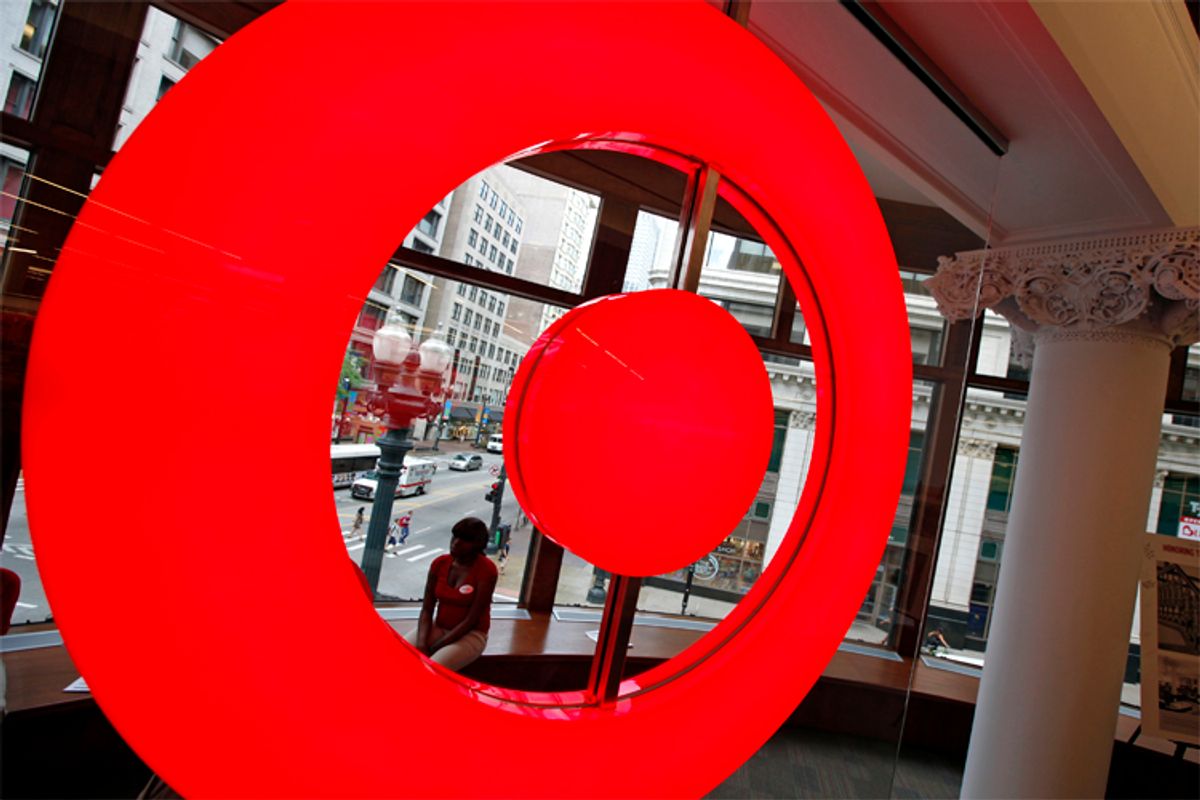With all the Republican obstructionism and Democratic spinelessness in Washington, not to mention the distractions of the Obamacare website, it can be hard to feel good about politics at all — let alone tap into the sort of optimism that inspires and motivates many of us in the first place. Here, then, is a story of a small statewide organization that brought a multi-billion-dollar, multinational corporation to heel.
Minnesota has the worst-in-the-nation racial jobs gap. In 2011, for instance, 18 percent of African Americans in the Twin Cities were unemployed — more than three times the unemployment rate for whites in the city. This stems from broader problems in the criminal justice system in which Minnesota has historically had one of most disproportionate rates of incarceration for African Americans as compared with whites. While, thanks to criminal justice reform, that rate has fallen — from 23:1 in the 1980s and 90s to 9:1 in 2005, that still means a lot of African Americans in Minnesota have a criminal record stemming not just from their past wrongdoings but from a skewed criminal justice system that convicted and sentenced African Americans more frequently and harshly than whites.
One step in unraveling these dynamics and helping close the racial jobs gap in Minnesota would be gaining equal access to jobs for those with criminal records. The statewide community organization TakeAction Minnesota wanted to pass a state law to “ban the box” on job applications that asks whether potential employees have a criminal history. Since the whole idea of prison supposedly incorporates our belief in redemption and a shot at a second chance, then discriminating against a disproportionately African American ex-convict population in employment opportunities is counterproductive in terms of criminal justice policy as well as economic development. And a group of TakeAction members with criminal records were passionate about making this change.
But, says TakeAction’s executive director Dan McGrath,“the problem with trying to change state policy is that when you walk into the state capitol, the lines on the playing field are already drawn.” So TakeAction worked outside of the capitol to try and open up some political space for change. And Target was the perfect, well, target.
Target — the nation’s second-largest retailer — was started and is still headquartered in Minnesota and employs 30,000 workers in the state, the fourth-largest employer statewide. And not unsurprisingly, the company pulls a lot of weight in Minnesota politics. TakeAction’s goal was to get Target to support the “ban the box” legislation at the state level.
In 2010, TakeAction started requesting meetings with Target leadership, to no avail. So eventually, TakeAction took things to the next level, bringing more than 200 people to take over the lobby of Target headquarters. Then they got a meeting, but according to McGrath, nothing came of it. In the winter of 2012, TakeAction organized 150 job applicants with criminal records to apply in local Target stores to work the holiday rush season. None was offered a job. But the action led to 10 Equal Employment Opportunity Commission complaints — which finally got Target’s attention.
Thanks to all this great organizing work, by the spring of 2013 TakeAction was able to persuade Target to support the “ban the box” legislation in Minnesota. Target even takes credit for convincing the state’s Chamber of Commerce to drop its opposition to the bill. In May of 2013, the measure was signed into law.
But having won a change for Minnesota workers, TakeAction wasn’t done. They continued to pressure Target at shareholder meetings and through other actions all the way until a meeting on Oct. 24th, when Target publicly announced it would “ban the box” on all its employment applications nationwide. This is great news for hundreds of thousands of job seekers across the country who have criminal histories, people who, in this economy, need access to jobs more than ever.
Target, a multinational corporation with 360,000 workers and $74 billion in profits, is held accountable by TakeAction Minnesota, a grassroots organization with 15,000 members and an annual budget of $2 million. Community organizing is all about the little guys banding together to make demands of giants, real-world David versus Goliath scenarios played out not with weapons and warfare but everyday people and creative action. When the Davids win, not only is the world a better place — the unchecked power of mega-corporations like Target necessarily forced to reckon with the best interests of workers and communities — but our hope and faith in the political process and our messy democracy is restored and revived.

Shares